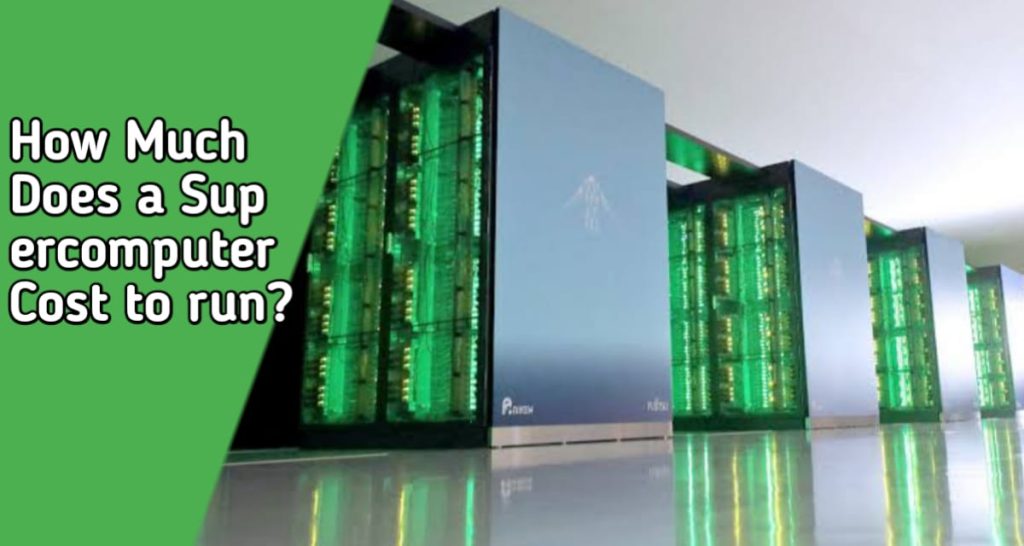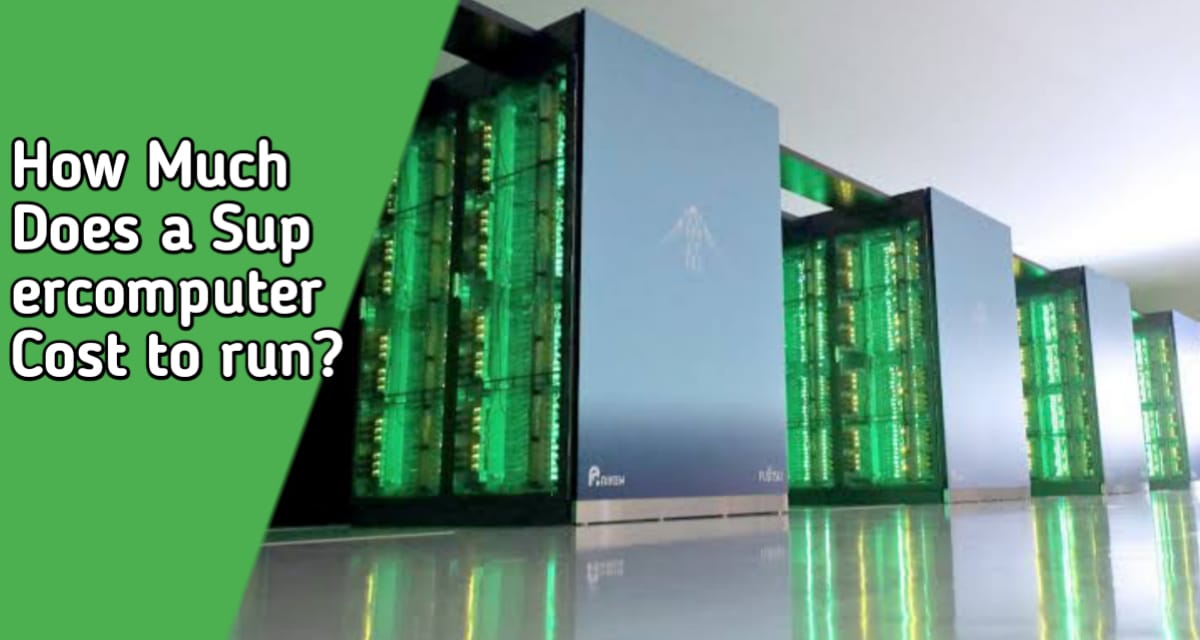How much does a supercomputer cost to run?
Supercomputers can be expensive to operate and maintain, which is why it’s important to understand just how much they cost to run. In this article, we’ll take a look at the average cost of running a supercomputer, what factors influence that cost, and some of the benefits associated with using one.
What is a supercomputer?
A supercomputer is a computer that can do a lot of calculations quickly. They are used for things like weather forecasting, scientific research, and designing planes and cars. A regular computer has a processing power of 1 teraflop. A teraflop is a trillion operations per second. A supercomputer has a processing power of 10 to 100 teraflops. That’s 10 to 100 times more processing power than the average computer!
How do supercomputers work?
Supercomputers are incredibly powerful machines that can handle a lot of complex calculations. They’re used for a variety of tasks, from research to climate prediction. The price you pay for a supercomputer depends on the specific model and specifications, but on average, they’ll run you around $5 million.
What are the different types of supercomputers?
Supercomputers are capable of performing extremely complex calculations, supercomputer can be used for a variety of purposes such as weather forecasting, nuclear research, and chemical simulations. There are a variety of different types of supercomputers, each with its own specific capabilities. Below is a list of the most common types of supercomputers:
RAC (Reduced Instruction Set Computing) Supercomputers: RAC supercomputers are designed for use in research and industrial applications where speed and low power consumption are critical. They typically use less powerful processors than other types of supercomputers and are optimized for performance on certain tasks.
Graphics Processing Units (GPUs): GPUs are specialized microprocessors designed specifically for the graphics processing needed to run high-end video games and other graphics-intensive applications. GPUs have made significant inroads into the supercomputer market in recent years, and as a result, RAC supercomputers are becoming increasingly dominated by GPUs.
Petascale Supercomputers: Petascale supercomputers are the most powerful commercially available machines, capable of processing more than one trillion calculations per second. They are used primarily for research purposes, but some have been deployed by large companies to help with massive
How much does a supercomputer cost to run?
A supercomputer is a powerful machine that can be used for a variety of purposes including research, development, and analysis. Supercomputers can cost a lot of money to run, and there are a variety of factors that go into determining how much they will cost. Let’s take a look at some of the most important factors.
Hardware: The most important factor when it comes to cost is the hardware. A supercomputer is made up of a large number of individual processors and other devices. This makes the overall machine more powerful, but also more expensive to operate. The type of hardware used will affect the price tag as well. Older machines may use slower processors and memory, while newer machines tend to use faster components with more memory.
Software: The software required to run a supercomputer can also be expensive. Oftentimes, this includes software that allows the machine to be used for specific tasks such as scientific calculations or data storage. Licensing fees for these types of programs can also add up quickly.
Location: Another major factor in the cost of owning a supercomputer is its location. The more remote the facility, the higher the cost will be to operate it.
How much does a supercomputer cost to run?
The average price of a high-end computer is around $2,000. However, the cost can go up or down depending on the features and specifications of the computer. Some supercomputers can cost up to $5 million.
The benefits of having a supercomputer
Supercomputers can be very beneficial for a variety of reasons. These machines can help scientists and researchers in a variety of disciplines accomplish tasks that would otherwise be difficult or impossible. In addition, supercomputers are often used in the oil and gas industry to simulate oil spills and find ways to prevent them from happening in the future.
One of the primary benefits of having a supercomputer is its ability to speed up certain tasks. For example, a supercomputer can be used to solve complex mathematical equations incredibly quickly. This is especially helpful when dealing with scientific research that has a long timeline or requires extremely precise calculations.
Another important benefit of having a supercomputer is its ability to crunch large amounts of data. Supercomputers are able to handle incredible amounts of data, which can be very helpful in various fields. Oil and gas companies, for example, rely heavily on computers to simulate oil spills and find solutions to prevent them from happening in the first place.
Another benefit of having a supercomputer is its ability to provide researchers with flexibility and versatility. For example, scientists at the University of Maryland use a supercomputer at the National Institute for Standards and Technology (NIST) for many different research projects. This allows them
What is a supercomputer and what does it do?
A supercomputer is a machine that is specifically designed to do complex calculations and solve problems faster than any other machine. They can be found in research institutions, large corporations, and universities around the world. Typical supercomputers use processors that are hundreds or thousands of times faster than what is found in personal computers.
How much does a supercomputer cost to run?
A supercomputer is a large, expensive machine that is used for calculations and research. The cost to run a supercomputer can vary drastically depending on the model and the specific needs of the user.
For example, a desktop computer that is used for general browsing and email can typically run for around $1,000 per year. A high-end gaming computer, on the other hand, can cost upwards of $5,000 or more each year to operate. Supercomputers used for scientific research can range from $100,000 to over $1 million dollars.

How does a supercomputer compare to other types of computers?
A supercomputer is a high-performance computer that is used for research and development, scientific and mathematical computing, or other high-end applications. The most powerful supercomputers can cost millions of dollars to run.
Compared to regular computers, supercomputers have faster processors, more memory, and faster storage devices. They are also often equipped with specialized software that allows them to perform certain tasks much faster than regular computers. However, the price of a supercomputer usually depends on its specific features and configuration.
There are several different types of supercomputers, including general-purpose (GP) supercomputers, which are used for a variety of applications such as web browsing, email, and office work; scientific compute nodes (SCN) which are specifically designed for scientific work; high-performance LINPACK clusters which are used for large scale numerical simulations; and machine learning classifiers on GPUs which are used for predictions in fields such as finance and medicine.
Conclusion
In today’s world, computing power is essential for everything from running a business to keeping up with scientific research. But what does it cost to run the most powerful computers in the world?
And how much do they cost to maintain? In this article, we take a look at some of the most expensive supercomputers in the world and find out just how much they cost to run each day. If you’re ever curious about how much a particular piece of hardware costs or how long it will last, read on!

